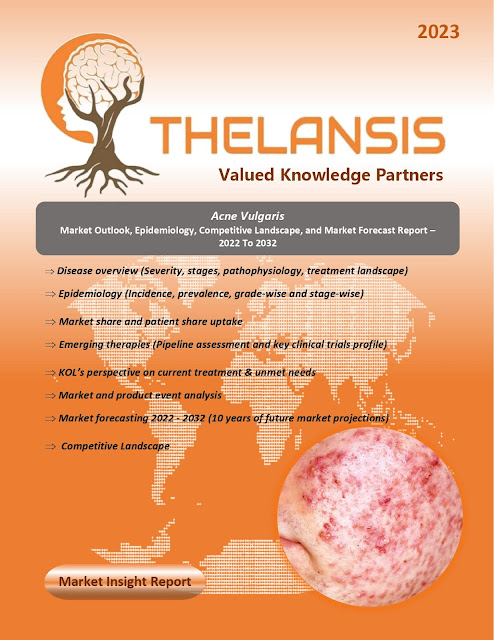Maple Syrup Urine Disease (MSUD) – Market Outlook, Epidemiology, Competitive Landscape, and Market Forecast Report – 2022 To 2032
Maple syrup urine disease (MSUD) is a rare inborn metabolic error characterized by reduced branched-chain ketoacid dehydrogenase enzyme activity. This deficiency can lead to severe irreversible neurocognitive deficits, underlining the importance of prompt diagnosis and treatment to mitigate the severity of complications. The branched-chain ketoacid dehydrogenase (BCKAD) complex is comprised of four subunits. These include the E1 subunit (BCKAD decarboxylase), the E2 subunit (dihydrolipoyl acyltransferase), and the E3 subunit (dihydrolipoamide dehydrogenase). Additionally, regulatory subunits known as BCKAD kinase and BCKAD phosphatase are associated with the core of the E2 subunit. The E1 subunit consists of E1alpha and two E1beta subunits. The root cause of the metabolic disorder lies in the decreased activity of the branched-chain alpha-ketoacid dehydrogenase complex located within the mitochondria. This disorder is inherited in an autosomal recessive manner. Maple syrup urine disease manifests in five primary clinical phenotypes. There exist five clinical subtypes of MSUD: classic, Intermediate, Intermittent, Thiamine responsive, and E3 deficient. These subtypes are differentiated based on their clinical presentation, age of onset, and the remaining BCKAD enzyme activity. It is crucial to distinguish from other conditions that can present as neonatal encephalopathy. These include Hypoglycemia, Status epilepticus, Meningitis, Encephalitis, Kernicterus, Birth asphyxia, Urea cycle defects, and Organic acidopathies such as propionic acidemia and methylmalonic acidemia, HMG-CoA lyase deficiency, Beta-ketothiolase deficiency, and Non-ketotic hyperglycinemia. The treatment approach involves restricting dietary leucine, utilizing BCAA-free medical foods, supplementing judiciously with isoleucine and valine, and closely monitoring clinical and biochemical indicators. Catabolic illnesses can be managed in outpatient settings through a "sick-day" formula, frequent amino acid monitoring, stress management, and targeted nutritional support. The prognosis is more favorable for patients who commence therapy before or immediately after symptom onset. Plasma leucine concentrations influence neurocognitive outcomes. Notably, individuals with classic MSUD have demonstrated better cognitive performance in school-aged settings. Many adult MSUD patients can lead independent lives and integrate well into society, although psychological and psychiatric care is still required for a substantial portion. Late-onset MSUD cases might experience mild developmental delays depending on residual BCKAD activity. A delayed diagnosis of classic MSUD beyond 7 to 14 days can result in irreversible learning impairment and cerebral palsy.
·
The calculated incidence of maple syrup urine
disease in the United States is approximately 1 in 220,219 individuals.
Thelansis’s “Maple Syrup Urine Disease
(MSUD) Market Outlook, Epidemiology, Competitive Landscape, and Market Forecast
Report – 2022 To 2032" covers disease overview, epidemiology, drug
utilization, prescription share analysis, competitive landscape, clinical
practice, regulatory landscape, patient share, market uptake, market forecast,
and key market insights under the potential Maple Syrup Urine Disease (MSUD)
treatment modalities options for eight major markets (USA, Germany, France,
Italy, Spain, UK, Japan, and China).
KOLs insights
of Maple Syrup Urine Disease (MSUD) across 8 MM market from the centre of
Excellence/ Public/ Private hospitals participated in the study. Insights
around current treatment landscape, epidemiology, clinical characteristics,
future treatment paradigm, and Unmet needs.
Maple Syrup Urine Disease (MSUD) Market Forecast Patient
Based Forecast Model (MS. Excel Based Automated Dashboard), which Data Inputs
with sourcing, Market Event, and Product Event, Country specific Forecast
Model, Market uptake and patient share uptake, Attribute Analysis, Analog
Analysis, Disease burden, and pricing scenario, Summary, and Insights.
Thelansis Competitive Intelligence (CI) practice
has been established based on a deep understanding of the pharma/biotech
business environment to provide an optimized support system to all levels of
the decision-making process. It enables business leaders in forward-thinking
and proactive decision-making. Thelansis supports scientific and commercial
teams in seamless CI support by creating an AI/ ML-based technology-driven
platform that manages the data flow from primary and secondary sources.




Comments
Post a Comment